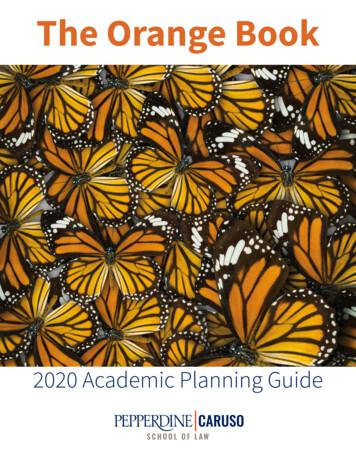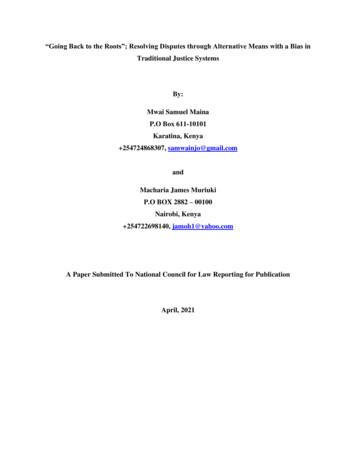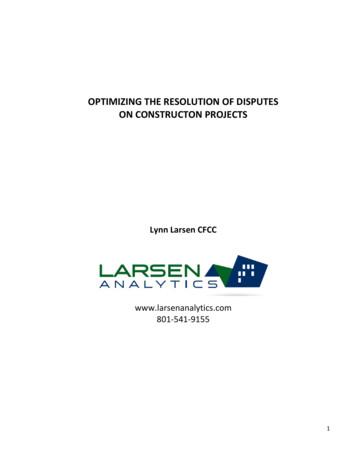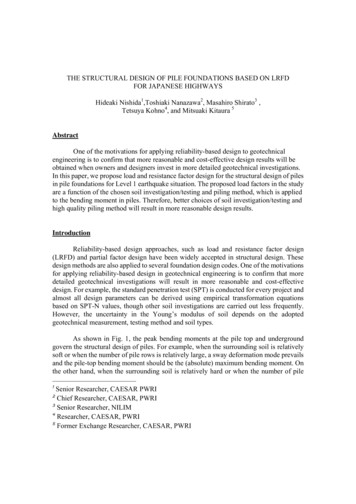Guide To Electoral Dispute Resolution - Carter Center
Guide to Electoral Dispute Resolution January 2010 The Carter Center One Copenhill 453 Freedom Parkway Atlanta, GA 30307 www.cartercenter.org
Contents Summary . 4 Carter Center Work in Democracy and Elections. 5 Carter Center Work in Conflict Resolution . 7 SECTION 1: ELECTORAL RIGHTS AS HUMAN RIGHTS Universal Declaration of Human Rights.10 International Covenant on Civil and Political Rights .10 Protection of Civil and Political Rights .10 Complaints and Appeals .11 Global Framework for Electoral Rights Protection .12 Regional Frameworks for Electoral Rights Protection .20 Organization for Security and Cooperation in Europe.21 Council of Europe .22 Organization of American States.25 Africa.28 SECTION 2: ELECTORAL DISPUTE RESOLUTION: ISSUES, STANDARDS, AND BEST PRACTICES Principles .32 Practices .33 Right to Petition for Redress.37 Aspects of the Pre‐election and Electoral Period .39 Political and Human Rights Environment .39 Legislative Framework for Elections.41 Voter Registration .43 Election Administration.45 Electoral Boundary Delimitation .46 Parties, Candidates, and Campaigns .47 Voter Education and Training of Election Officials.57 Observers .59 Media .59 Voting and Counting .60 Tabulation.62 Results.64 Special Dispute Resolution .66 SECTION 3: MANUAL FOR PRACTITIONERS Complaint/Appeal Process.70 Aspects of the Pre‐Election and Election Period .74 Legislative Framework for Elections.75 Voter Registration .76 The Carter Center Guide to Electoral Dispute Resolution 2
Election Administration.77 Election Boundary Delimitation.78 Parties, Candidates, and Campaigning.80 The Campaign .81 Campaign Dispute Resolution .81 Common Campaign Violations .82 Campaign Finance Regulation.85 Voter Education and Training of Election Officials .85 Observers.86 Media .87 Voting and Counting.88 Tabulation.90 Results.92 Special Dispute Resolution .93 Appendix A: References .95 Appendix B: Excerpts from Treaties and Other Legal Texts .99 Appendix C: Excerpts from International Declarations, Resolutions, and Interpretations 105 Appendix D: Guidelines . 126 The Carter Center Guide to Electoral Dispute Resolution 3
Summary Electoral rights are based on fundamental human rights, namely the civil and political freedoms of opinion, expression, association, and peaceful assembly that are solidly established on a global and regional basis under numerous international conventions. The right to enjoy free and fair elections also derives from the right to participate in governance, both directly and through representatives, which is also established through these instruments. Finally, the treaties also require protection of electoral as well as other human rights through an effective system of appeal. The importance of electoral dispute resolution is often underappreciated, since the electoral complaint and appeal process is governed by technical, legal rules. The applicable rules are specific to each state, and there are no agreed models for electoral dispute resolution on the international level. Due to the variety of comparative experience in this area, even proposed standards and best practices are somewhat general in nature. Failure to create and implement effective mechanisms to resolve electoral appeals can seriously undermine the legitimacy of an entire electoral process. At the same time, there are often numerous impediments to effective dispute resolution, including incomplete, vague, inconsistent, duplicative, or overly complex rules and procedures; weak or insufficiently autonomous electoral and judicial institutions; lack of training; and political or other interference. International participation in electoral dispute resolution is significant, but mainly indirect. The international community provides technical advice, assistance, and support to countries in designing, establishing, and implementing systems for handling election complaints and appeals. International election observers assess the adequacy of dispute resolution, follow the handling of particular cases, and publish findings and recommendations. Sometimes, when serious electoral issues remain, international organizations and other institutions undertake missions – including those for fact-finding, conciliation, and mediation – to monitor or assist in dispute resolution or make recommendations for further international action. The Carter Center has extensive experience in electoral observation and technical assistance. With respect to technical assistance, the Center is currently working with other election observation organizations on a democratic election standards project to identify specific comprehensive obligations for democratic elections based on international law, including but not limited to electoral dispute resolution. In a separate but parallel effort, The Carter Center has also initiated a project on electoral dispute resolution, in order to collect information on the resolution of such disputes, identify the key issues, and identify approaches to disputes that arise in connection with elections. The current report is based on a background paper that contains analysis of related international law, standards, and practices; description of the ways electoral disputes arise and how they are handled at each stage of the election process; identification of approaches that can be made by practitioners in response to these issues; and a collection of relevant documents and sources. The Carter Center Guide to Electoral Dispute Resolution 4
The Carter Center Work in Democracy and Elections Now more than ever, citizens around the world participate in elections to hold their governments accountable, and more governments than ever recognize democratic elections as essential to establishing their legitimate authority. Yet one democratic election does not change the political culture of a society overnight. Long-term efforts are necessary to build an inclusive democratic society that respects human rights and laws, administers justice fairly, and encourages full citizen participation in government. Observing Elections The assessments of organizations that monitor elections in emerging democracies are central to determining whether an election is considered genuinely democratic. The Center has been a pioneer of election observation, monitoring more than 70 elections in Africa, Latin America, and Asia since 1989, and forging many of the techniques now common to the field. Most recently, the Center has observed elections in Indonesia, Lebanon, Nepal, and Sudan. The Center must be invited by a country’s election authorities and welcomed by the major political parties to ensure it can play a meaningful, nonpartisan role. Long before election day, observers analyze election laws, assess voter education and registration, and evaluate fairness in campaigns. When votes are cast, the presence of impartial observers deters interference or fraud and reassures voters that they can safely and secretly cast their ballots. Before, during, and after an election, the Center’s findings are shared in-country and reported to the international community through public statements. Developing Standards for Democratic Elections The Center, together with the U.N. Electoral Assistance Division and the National Democratic Institute, played a key role in producing the Declaration of Principles for International Observation, which established professional standards for election observers. Launched in 2005, the declaration has been endorsed by more than 30 observer organizations. Now the Center is spearheading efforts to identify and foster consensus on common international standards for what constitutes a genuinely democratic election. A related project is creating a method for observing electronic voting. Although the declaration establishes general principles for professional observation, it does not attempt to define what is meant by “genuine democratic elections.” The international community does not have a single common set of internationally accepted standards for democratic elections or criteria for assessing elections. As a result, there is an urgent need for election observation organizations to work together to build consensus on detailed criteria for assessing elections. In 2005, The Carter Center launched a multiyear collaborative project, carried out by the Democracy Program, aimed at developing and building consensus around a single set of criteria for assessing democratic elections. The initiative recognizes that election observation should be The Carter Center Guide to Electoral Dispute Resolution 5
understood in the context of, and closely linked to, broader efforts to promote democracy, with elections as unique opportunities to assess how well a country's political institutions serve its citizens. Project goals include an innovative approach to developing criteria for assessing elections based on obligations in public international law. The Carter Center is working closely with a number of other organizations to develop this methodology and to promote broad international consensus about the key criteria for democratic elections through formal and informal dialogue processes. The Carter Center Guide to Electoral Dispute Resolution 6
The Carter Center Work in Conflict Resolution Wars produce the worst violations of human rights worldwide and are the greatest impediment to human development. Most of the more than 50 major armed conflicts since the Cold War have been internal clashes over religion, national or ethnic identity, or access to natural resources or wealth. The Conflict Resolution Program works to resolve such conflicts and build sustainable peace. The Carter Center has become a trusted broker for peace, serving as an alternative channel for dialogue and negotiation until official diplomacy can take place. As a nonpartisan, nongovernmental organization with access to world leaders and expertise in mediation, negotiation, and peace building, the Center helps warring parties when traditional dispute resolution methods fail, filling the space between official diplomacy and unofficial grassroots peace efforts. Monitoring and Mediating Conflicts Program staff and interns monitor daily many of the world’s armed conflicts to better understand their histories, the underlying causes, the primary actors involved, the disputed issues, and the efforts being made to resolve them. The Center will intervene if no current avenues for mediation exist or are working effectively. To mediate, the Center must be invited by all of the major adversaries and see evidence that they are truly interested in resolving the conflict. Conflict Resolution Program staff pave the way through ground-level contacts, and President Carter may travel to the region and remain in close touch with key leaders. Implementing Peace Agreements and Building Peace An end to fighting does not always mean a conflict has been completely resolved. The oftenprotracted process that leads to a peace agreement represents the beginning of an even longer process of peace implementation and post-conflict reconciliation. All parties must be held accountable for implementing agreements in good faith. Beyond the implementation of a peace agreement, root causes of a conflict may linger and continue to fester to the point of reigniting the conflict. Bringing former combatants together to forge a shared future demands patient, persistent effort. Steps may be taken to ease ethnic tensions, identify and build consensus around shared social goals, strengthen the rule of law, and bring justice to victims. Preventing Conflict While direct negotiation to resolve armed conflict is the program’s major focus, there is also an emphasis on preventing conflict. A series of minor crises can signal or contribute to deteriorating societal and political stability. In such situations, parties in dispute may approach the Center as a neutral third party to facilitate dialogue that can keep tensions from erupting into violent conflict. The Carter Center Guide to Electoral Dispute Resolution 7
Electoral Conflict Resolution Electoral interests are important civil and political rights, among the core human rights for which effective protection must be provided through official appeal and adjudication channels. Increasingly, effective resolution of disputes is considered essential to successful conclusion of the election process and acceptance of its results. Resolution of election complaints and appeals is often impeded by complex administrative, legal, procedural, and other factors. Failure to address legislative and other legal ambiguities often results in substantial appeals being rejected on technicalities, especially when the relevant institutions are weak or unduly subject to influence by government or other political interests. Phase I of The Carter Center’s election dispute resolution (EDR) project is aimed at assembling a dispute resolution guidebook for election practitioners, including administrators, parliamentarians, political-party representatives, civil society, and observers. The guidebook demonstrates that electoral rights are among the human rights subject to protection through the complaint and appeal process, identifies the major issues (including legislative, administrative, other legal, procedural, and political) impeding effective electoral dispute resolution, and distills the major issues into a manual for practitioners. 1 The guidebook also contains appendices referencing the main global and regional legal texts supporting the protection of electoral rights through the election complaints/appeal process. As part of a second phase (not reflected in this document), the guide could also be supplemented by special regional studies, including those for Africa and the Middle East, and could be validated by use in connection with upcoming elections in these regions. It is anticipated that the manual for practitioners and associated materials in the guidebook would also be employed by The Carter Center in its ongoing programs in Africa, including with respect to technical cooperation with the African Union. In particular, the contents could assist participants and observers during upcoming elections both there and in the Middle East. The outline for the guidebook follows: Section 1: Electoral Rights as Human Rights: The resolution of electoral disputes, particularly postelection appeals, may constitute the most sensitive phase of an election, but its importance is often underappreciated and sometimes largely overlooked. Yet the credibility of an entire election may depend on open and effective dispute resolution, carried out without governmental manipulation or political interference, to prevent public suspicion or even unrest. The introductory section will elaborate on the importance of dispute resolution in the election process, and contain an overall description of the legal and other authorities that require electoral rights to be protected through effective complaint/appeal proceedings. The discussion will reflect and synthesize the primary legal and related sources cited in the appendix, including the main global and also selected regional documentation. 1 This guidebook was drafted by Dr. Daniel Finn. The Carter Center Guide to Electoral Dispute Resolution 8
Section 2: Issues, Standards, and Best Practices for EDR: This section presents the major issues impeding electoral dispute resolution. Among the issues that should be addressed by election administrators, election stakeholders, and complaint/appeal bodies are the following: Are the relevant legislative provisions clear and unambiguous, including with respect to the proper forum for complaint/appeal resolution, form of action (e.g., administrative, civil, or criminal) and available remedies, and the specific information (including forms) and evidence to be submitted? Have conflicts between electoral law and procedural codes been reconciled, or is there a clear way to resolve them through statutory interpretation and principles? Are the procedures and standards applied by dispute resolution bodies (election administration or the courts) clearly set forth in the law or adequately described in applicable rules of procedure and/or regulations? Do the rules concerning disputes give sufficient notice of the obligation of complainants to appeal, and if necessary initiate litigation on, alleged violations and their effects on an ongoing basis during the electoral process? Are effective remedies available at each stage of the process, and is the scope of a potential postelection remedy sufficient to address the issues in a comprehensive way? Does the postelection appeal process permit issues that have not previously been resolved to be considered in a way that enables the following: factual claims and legal issues to be reviewed, proposals for alternate remedies to be considered, and a timely result achieved that could receive widespread political acquiescence and public support? Specific examples of the various issues are discussed, and suggestions about how to address them are presented. Section 3: EDR Matrix/Manual for Practitioners: Based on the background and analysis, the manual contains a matrix of chief problems, considerations, and solutions to assist election practitioners (see above) to work for specific improvements in the resolution of electoral disputes. Section 4: Appendices, references, and excerpts from international treaties; international declarations and resolutions; and proposed international guidelines, standards, and practices related to EDR. The Carter Center Guide to Electoral Dispute Resolution 9
Section 1 ELECTORAL RIGHTS AS HUMAN RIGHTS Electoral rights are founded on fundamental human, civil, and political rights. Electoral rights are explicitly protected under the leading international principles and treaties establishing and protecting human rights. 2 Universal Declaration of Human Rights The inclusion of electoral rights within the human rights subject to international protection was explicitly made through the 1948 Universal Declaration of Human Rights, Article 21, which states: 1. 2. 3. Everyone has the right to take part in the government of his country, directly or through freely chosen representatives. Everyone has the right to equal access to public service in his country. The will of the people shall be the basis of the authority of government; this shall be expressed in periodic and genuine elections which shall be by universal and equal suffrage and shall be held by secret vote or by equivalent free voting procedures. The Universal Declaration also recognized a number of other rights connected with elections, including the rights to nondiscrimination (Article 2), equality and equal protection (Article 7), freedom of expression and information (Article 19), and freedom of peaceful assembly and association (Article 20). It also makes clear, in Article 8, that human rights should be enforceable through national channels: “Everyone has the right to an effective remedy by the competent national tribunals for acts violating the fundamental rights granted him by the constitution or by law.” International Covenant on Civil and Political Rights The protections for human rights recognized under the Universal Declaration were defined and extended through the International Covenant on Civil and Political Rights (Covenant, or ICCPR), a binding treaty adopted under United Nations auspices. The ICCPR also guarantees various civil and political rights associated with elections, including the freedoms of opinion and expression (Article 19), peaceful assembly (Article 21), and association (Article 22). The Covenant also clarifies the extent and under what circumstances restrictions can be placed on their exercise (Articles 19.3 and 21) – viz., if the restrictions are based in law and are socially necessary. Protection of Civil and Political Rights The ICCPR also contains provisions concerning the implementation of human rights guarantees by state parties. First, states undertake, “in accordance with [their] constitutional processes and with the provisions of the Covenant” to “take the necessary steps to adopt such legislative 2 NB – Major documents and works cited in the text are described in the References (Annex A); citations to other works are contained in footnotes. The Carter Center Guide to Electoral Dispute Resolution 10
or other measures as may be necessary to give effect to the rights recognized” in it (Article 2.2). Second, the parties also undertake to provide effective administrative, judicial, and other remedies for the protection of these rights (Article 2.3). The ICCPR, in Article 25, lays out in greater detail the rights to participate in democratic governance, including through elections: Every citizen shall have the right and the opportunity, without any distinctions and without unreasonable restrictions: a. To take part in the conduct of public affairs, directly or through freely chosen representatives; b. To vote and to be elected at genuine periodic elections which shall be by universal and equal suffrage and shall be held by secret ballot, guaranteeing the free expression of the will of the electors; c. To have access, on general terms of equality, to public service in his country. The ICCPR also provides for states to submit periodic reports on human rights in their territory (Article 40) and established a United Nations Human Rights Committee (UNHRC) to assist in monitoring implementation of the Covenant and its protocols by state parties (Article 28). The UNHRC, which consists of experts in the field of human rights, meets several times a year, and submits an annual report to the General Assembly. States that have agreed to reciprocal application of the procedure by other states may refer issues related to implementation of the Covenant to the UNHRC (Article 40), which may appoint an ad hoc Conciliation Commission to pursue the matter (Article 42). With respect to elections, the UNHRC has issued General Comment 25 on the interpretation and application of ICCPR Article 25; and, for states that have agreed to the First Optional Protocol of the Covenant, also considers matters brought before it by individuals. In addition, the UNHRC has published General Comments (Nos. 31 and 32) on the right to an effective remedy (ICCPR Article 2) and standards for adjudicative proceedings (Article 14.1). General Comment No. 25 and selected determinations of the UNHRC under Article 25 will be discussed below, as will the General Comments (Nos. 31 and 32) related to the right to an effective remedy through appeal and adjudication. Complaints and Appeals The ICCPR extended the principle of effective remedies for human rights violations by requiring states to implement appropriate procedures to consider complaints, and take steps to enforce the remedy granted. Under Article 2.3, each state party to the Covenant undertakes: a. To ensure that any person whose rights or freedoms as herein recognized are violated shall have an effective remedy, notwithstanding that the violation has been committed by persons acting in an official capacity; b. To ensure that any person claiming
Electoral Conflict Resolution Electoral interests are important civil and political rights, among the core human rights for which effective protection must be provided through official appeal and adjudication channels. Increasingly, effective resolution of disputes is considered essential to successful conclusion of
Dispute Resolution: Options Dispute resolution procedures can be split intotwo categories. The first category isformal dispute resolution, primarilyinvolving court adjudication. The second category is a more informal option for parties andis labeledAlternativeDispute Resolution(ADR). Thiscategory includes negotiation, mediation and arbitration.
Pepperdine Caruso Dispute Resolution Law Journal Since 2000, the Pepperdine Caruso Dispute Resolution LawJournal (DRU) has been committed to publishing articles that explore Alternative Dispute Resolution (ADR) under various contexts.With support from the Straus Institute for Dispute Resolution
Research Journal of English Language and Literature . 59-65. 8 Catherine Price, Alternative Dispute Resolution in Africa: Is ADR the Bridge Between Traditional and Modern Dispute Resolution?, 18 Pepperdine Dispute Resolution Law Journal pg 395 (2018) Available . 18 Pepperdine Dispute Resolution L
Susan Johnson OBE Peter Maddison QPM Amanda Nobbs OBE Steve Robinson Jolyon Jackson CBE (Chief Executive) What is an electoral review? 3 An electoral review examines and proposes new electoral arrangements for a local authority. A local authority's electoral arrangements decide: How many councillors are needed.
2.4 Dispute Resolution Board (DRB) 3 4 The Dispute Resolution Board (DRB) process provides an independent non-binding recommended resolution of a disagreement from skilled construction savvy individuals in "real time." Those individuals are preselected by the parties to the contract and are available to advise the resolution of a dispute at the .
The Dispute Resolution Process is set out in Section 2 of the Code. Further information along with required forms may be found in Agreed Procedure 14 of the Code. APPOINTMENT OF THE DISPUTE RESOLUTION BOARD The Disputing Parties enter into contract with the Panel Members directly rather than with the Market Operator. The Form of Dispute .
Resume Consultation * The positions of responsibility for each level of management decision-making in this resolution page are referenced in the dispute resolution ladder. ** Once the dispute resolution process reaches 1. st. level management, the time ta
in pile foundations for Level 1 earthquake situation. The proposed load factors in the study are a function of the chosen soil investigation/testing and piling method, which is applied to the bending moment in piles. Therefore, better choices of soil investigation/testing and high quality piling method will result in more reasonable design results. Introduction Reliability-based design .























